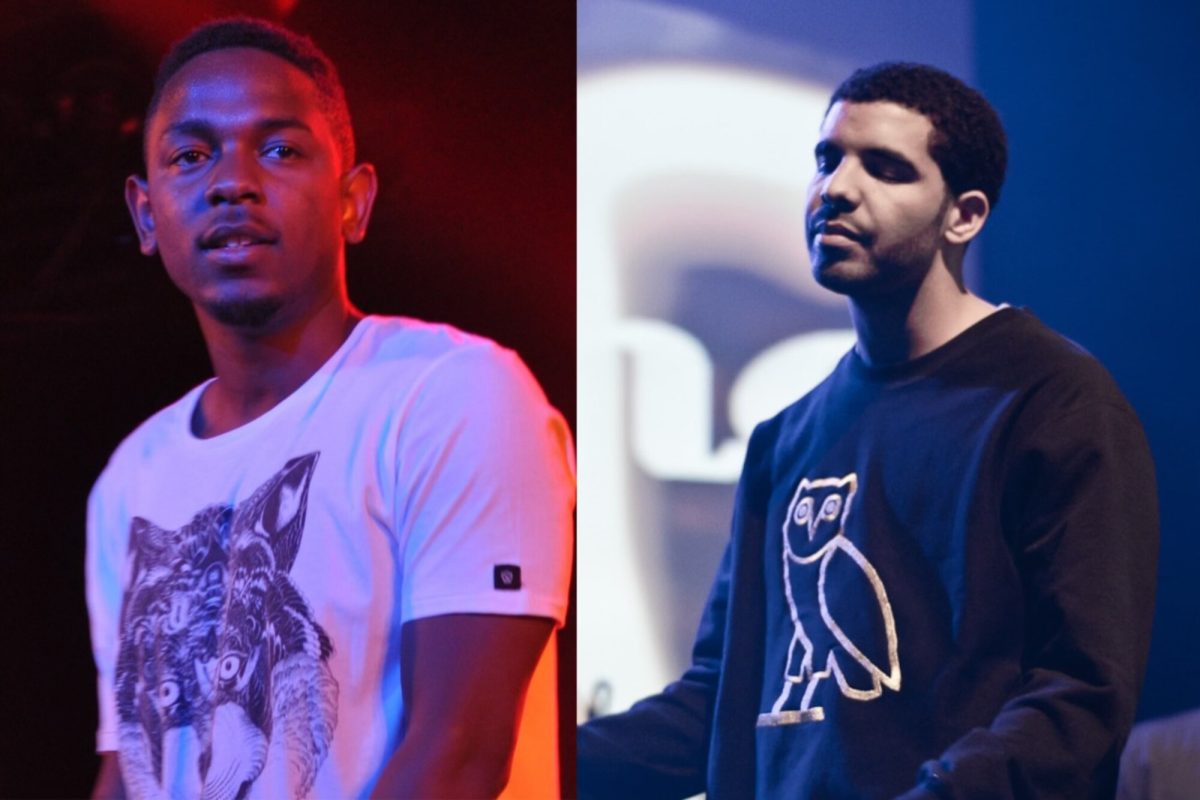Toronto rapper Drake is suing Universal Music Group (UMG) for defamation after a decade-long feud with Compton rapper Kendrick Lamar reached its boiling point in a public rap battle last spring. In the midst of the altercation, Drake accused Lamar of several slanderous actions, such as domestic abuse and infidelity, while Lamar claimed Drake had connections to sex-trafficking and an iniquitous relationship with minors such as Millie Bobby Brown.
The verbal sparring consisted of several hit songs released by the two well-known hip hop artists, including Lamar’s five-time grammy winning song, “Not Like Us.” The diss track features very direct accusations toward Drake, that, due to their catchiness, have become the foremost image of the OVO artist.
In papers filed in New York last November, Drake accused his label UMG, which both he and Lamar are signed to, of unfair and illegal promotion of ‘Not Like Us’, claiming that bots were used to replay the song, which boosted its streams and created a false sense of prominence. In addition to this malpractice, the filed accusations claim that people in the company that were loyal to Drake were fired. These latter claims, however, were never followed through in court and were withdrawn in January.
Most recently, Drake’s lawyers have filed another lawsuit in the US District Court for the Southern District of New York, which accuses UMG of prioritising, “corporate greed over the safety and well-being of its artists.” The lawsuit points out many controversial issues with Lamar’s track, such as the usage of Drake’s Toronto home with sex offender markers on it as the cover of the song.
In prior rap battles, not many music artists have followed through with defamation suits because of the difficulty to prove specific claims in songs that were typically unfounded. In addition to this, defamation suits often backfire by bringing more attention to the claims and worsening the reputation of the artist. An example of this is Taylor Swift vs. DJ David Mueller in 2017, in which Swift accused Mueller of sexual assault. Mueller sued for defamation, and Swift countered the suit, winning and proving her claims truthful.
Despite the industry’s track record in defamation cases, Drake’s team seems to think they have a solid chance at winning. In the suit, many grievances are cited, such as a shooting at Drake’s Toronto home and the fact that Drake had to remove his son from his school because of bullying brought about by false claims in the song.
In a statement released by UMG, the label denies any aspect of defamation.
““We have not and do not engage in defamation—against any individual,” a UMG spokesperson said to NBC. “At the same time, we will vigorously defend this litigation to protect our people and our reputation, as well as any artist who might directly or indirectly become a frivolous litigation target for having done nothing more than write a song.”
This is an ongoing lawsuit that may develop further in the coming weeks.




